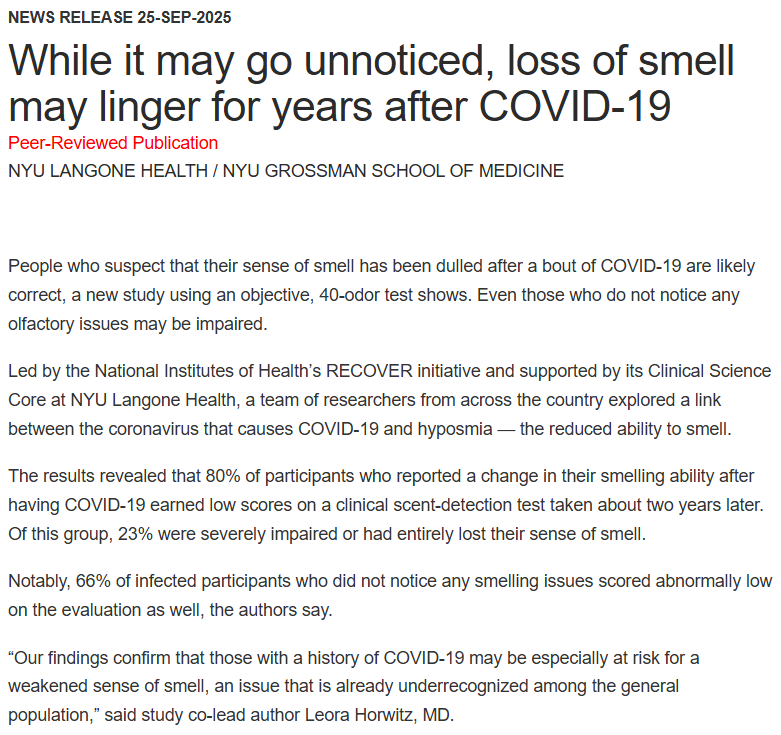News Release 25-Sep-2025
While it may go unnoticed, loss of smell may linger for years after COVID-19
Peer-Reviewed Publication
NYU Langone Health / NYU Grossman School of Medicine
People who suspect that their sense of smell has been dulled after a bout of COVID-19 are likely correct, a new study using an objective, 40-odor test shows. Even those who do not notice any olfactory issues may be impaired.
Led by the National Institutes of Health’s RECOVER initiative and supported by its Clinical Science Core at NYU Langone Health, a team of researchers from across the country explored a link between the coronavirus that causes COVID-19 and hyposmia — the reduced ability to smell.
The results revealed that 80% of participants who reported a change in their smelling ability after having COVID-19 earned low scores on a clinical scent-detection test taken about two years later. Of this group, 23% were severely impaired or had entirely lost their sense of smell.
Notably, 66% of infected participants who did not notice any smelling issues scored abnormally low on the evaluation as well, the authors say.
“Our findings confirm that those with a history of COVID-19 may be especially at risk for a weakened sense of smell, an issue that is already underrecognized among the general population,” said study co-lead author Leora Horwitz, MD.
